#Medieval Science
Explore tagged Tumblr posts
Text

Transmutation II The second part to an already exisiting piece also expanding the collection of the albino werewolf pieces. This piece was long in the waiting phase. It was sketched alongside the other piece but always landed on the backburner somehow.

Okay quick update! Since posting this piece I've already got several messages of people asking me if the new piece will be available as well. I've decided to extend the tapestry form until Sun. 17th of November & adding the new piece to the selection!

#werewolf#werewolves#wolf#werewolf wednesday#werewolf transformation#transformation#wolf art#werewolf art#manuscript#medieval manuscript#alchemy#arcane#illuminated manuscript#moon#celestial#astronomy#skeleton#anatomy#anatomical diagramm#medieval science#medieval#fantasy#digitalart#medievalart#digital art#art#lunegrimmart#creature#lycanthrope#knotwork
164 notes
·
View notes
Text
10 Medieval Articles from the journals of the Royal Society
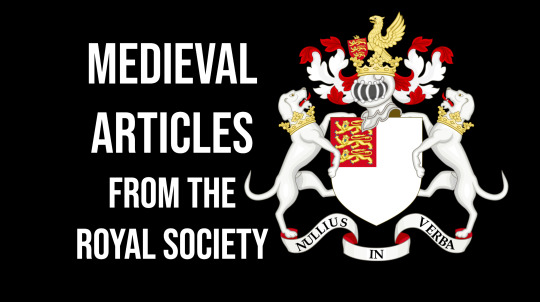
Here are ten fascinating articles from the Royal Society’s journals that shed light on the Middle Ages.
12 notes
·
View notes
Text
I am getting that urge again to post about Astronomy/Astrology and how it plays a role in Medicine lore.
It's really kinda important to understanding why Morgan learns magic in a nunnery/convent of all places.
As places of learning for women, and more importantly, a place for women to learn Medical Knowledge, Morgan learning mystical practices in a religious center is not at all unusual. (Aside from the historical quirks about Celtic Christianity)
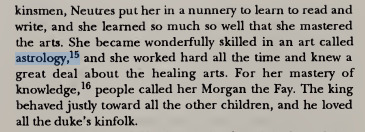
And for that matter, the Seven Liberal Arts (which includes Astronomy), which is a requirement in order to be a doctor in the Medieval era, being a recurring element found with sorcerous individuals

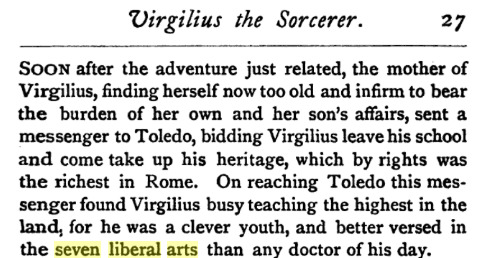
(EDIT: Astronomy is also really important to the Church because its an important tool for Calendar making and the marking out of holidays, especially Easter.)
#morgan le fay#astronomy#medieval history#medieval science#medieval culture#medieval astronomy#the seven liberal arts#arthuriana#arthurian legends#nunneries#humorism
7 notes
·
View notes
Text
The Light Ages?
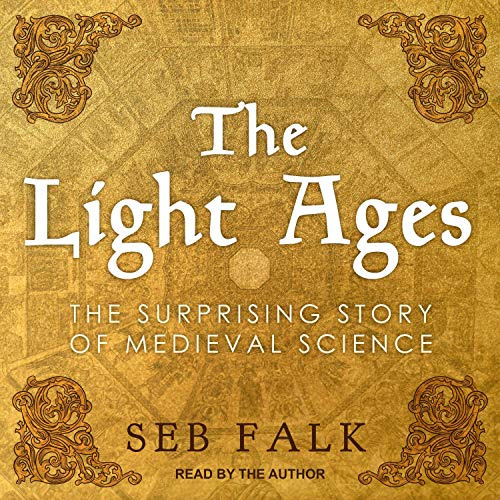
I have finished listening to The Light Ages: The Surprising Story of Medieval Science by Seb Falk. I enjoyed this book and learned much from it, but if I were writing a book about medieval science, the result would be very different. Salk manages to skirt the whole of medieval philosophy while discussing medieval science, which I understand, but I think that treating medieval science in an intellectual vacuum gives a misleading impression of it. The best part of the book was the Epilogue, which made several good points that didn’t really stand out in the bulk of the text. If I had been the editor, I would have taken the Epilogue, broken it up into a table of contents, and sent the author back with instructions to use that for the structure of the book. Instead, the structure of the book is supplied by the life of one John Westwyk (as it is apparently the editorial requirement for science and history books for a popular audience to humanize the subject matter as much as possible). The author did a good job of larding in human interest through the life of John Westwyk, and the latter’s design for a particularly elaborate equitorium, without overdoing it.
The author takes a brave stance on the role of astrology in the period, and its close relationship to astronomy. By “brave stance” I mean that he didn’t try to minimize it. I wouldn’t be able to be so sanguine about astrology if I were writing a history of medieval science. My takeaway from learning that there were regulations for medieval physicians to own an astrological almanac and an astrolabe would be that even promising bodies of knowledge can get lost in the weeds. The argument could be made that the development of any form of quantitative thought directly tied to observation, as well as the existence of precision instrument makers, were conditions for the possibility of the scientific revolution, which did eventually appear within this milieu. Salk, however, does not make this argument, though perhaps one could say that it is implicit throughout.
I understand the interest of medieval scholars to distance themselves from the stereotype of the “Dark Ages,” and their desire to showcase the intellectual achievement of the age, but this shouldn’t come at the cost of misrepresenting the period. Salk’s book moves back and forth in the last few centuries of the Middle Ages, which, for some historians, is already showing signs of modernity to come. Some scholars place the earliest manifestations of modernity in the fourteenth century (for example, Petrarch’s ascent of Mt. Ventoux), when much of this book on the middle ages is taking place (John Westwyk’s approximate dates are 1350-1400, so already verging on the fifteenth century). One could write a book on this late medieval science and, instead of portraying it as an achievement of the Middle Ages, claim it as an early expression of modernity.
The darkest of the dark ages, from the collapse of the Roman Empire in the West to the appearance of Charlemagne—about three hundred years—are not addressed at all in this book. Even after Charlemagne there was no real tradition of surviving or reawakened scientific thought. The period discussed in Charles Homer Haskin’s classic The Renaissance of the Twelfth Century is yet several hundred years in Charlemagne’s future, and this renaissance was primarily literary. Jean Gimpel’s The Medieval Machine would be a good source for the story of medieval technology prior to the time of John Westwyk, and one could make the argument that there is an implicit science behind the technology described by Gimpel, as indeed there is implicit science behind the construction of the great cathedrals in the thirteenth century. Salk could have made this argument, but, again, he didn’t.
These criticisms, however, aren’t really criticisms of Salk’s book, which I recommend. There is more that can yet be done in recounting the development of science, technology, and engineering during the Middle Ages, and Salk’s book can be understood as a contribution to an area of scholarship in need of more material.
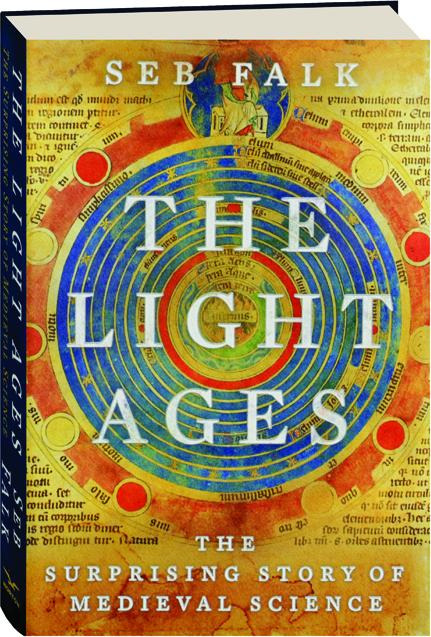
2 notes
·
View notes
Text
Look, I wrote a fic with the folks in the middle ages accidentally realizing how to do penecillin. I learned more about how to create that stuff than I ever cared to learn.
I can understand how "modern person thrown into the past gets by pretending to be a healer/doctor" is as surprisingly common of a trope as it is. I mean I'm fluent enough at bullshitting to be pretty sure I could pull it off to impersonate a doctor in any time pre-1800s. If I have no idea what something is or how to treat it, I could just get the opinion of the other whatever-passes-as-medical-professionals around, but if their suggestions sound like bullshit I'm not doing it. And I'll beat the shit out of anyone suggesting bloodletting or mercury. With my healing stick. I've tied little bells on it, that jingle comically with every smack.
The awesome curative powers of my healing stick come from two separate sources: Placebo, and me using it to beat anyone trying to give my patients mercury.
47K notes
·
View notes
Text
Illuminating the Shadows: The Legendary Assembly That Shaped a Golden Age.
Sanjay Kumar Mohindroo Sanjay Kumar Mohindroo. skm.stayingalive.in A sweeping narrative of an era’s brilliant scholars, their timeless lessons, and the enduring spirit that turned mistakes into transformative wisdom. #SurrealReflections #HouseOfWisdom #IslamicGoldenAge #AncientWisdom #Philosophy #History #Science #Mathematics #Astronomy #CulturalExchange #Enlightenment #Inspiration…
#Abbasid Caliphate#Al-Farabi#Al-Khwarizmi#Al-Kindi#Al-Razi#Arabic translations#Baghdad#cultural exchange#global scholarship#golden era#historical legacy#House of Wisdom#Ibn al-Haytham#Ibn Sina#intellectual tradition#Islamic Golden Age#medieval science#mistakes as lessons#News#philosophical discourse#Sanjay Kumar Mohindroo#universal knowledge
0 notes
Text
Discover the significance of the House of Wisdom in history. During the Islamic Golden Age, it was a renowned center of study.
#umrah guide#hajj and umrah#umrah service#umrah experience#spiritual journey#umrah 2024#umrah package 2024#exclusive umrah#faith in islam#umrah tour#House Of Wisdom#Islamic Golden Age#Islamic History#Knowledge And Wisdom#Baghdad#Cultural Heritag#Medieval Science#Scholarly Tradition
0 notes
Text
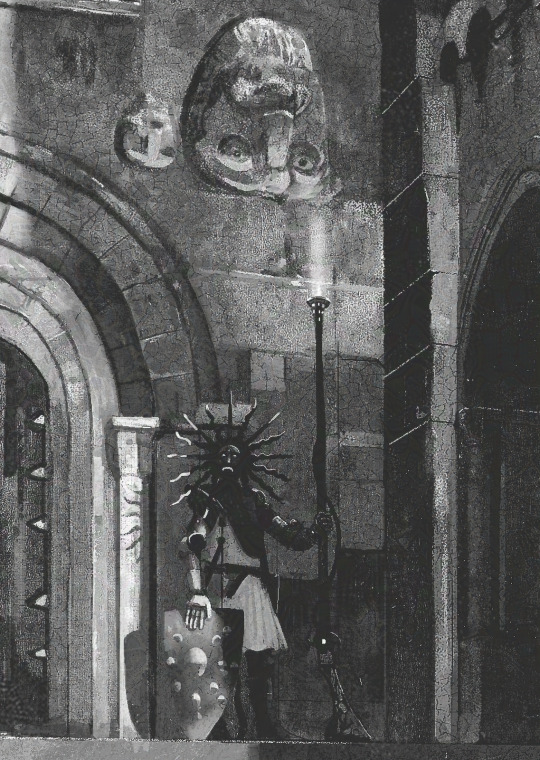
Detail of a bigger painting created for my upcoming book Ergo Cosmos, now on Patreon!
"That is why certain devout knights wear a solar helmet; the Radiant Star is called to witness the sacrifice of their life, the ascension of their spirit, and the depths of their passion."
#artists on tumblr#fantasy#ttrpg#fantasy illustration#artbook#character design#character art#retro scifi#ink#digital painting#dark fantasy#dark art#dark aesthetic#gothic#goth aesthetic#knight#knightcore#knightposting#scifiart#sci fi and fantasy#science fiction#science fantasy#retro fantasy#retro aesthetic#indie ttrpg#dungeon synth#medieval fantasy#medieval#middle ages#17th century
2K notes
·
View notes
Text
I'd like to introduce you to LJS 57, a compendium of Astronomical text in Hebrew, written in Spain around 1391. It's an interesting combination of astronomy and astrology, and illustrates how the division between "science" and "not science" was not nearly so clear in the past as it is today. It has some fantastic illustrations of constellations!
🔗:
#medieval#manuscript#medieval manuscript#14th century#hebrew#astronomy#astrology#stars#constellations#illustrations#illuminations#diagrams#history of science#book history#rare books
4K notes
·
View notes
Text
sorry i know this is extremely unrelated to my usual posts but all my friends lust after knights and i feel like a freak and outsider for not getting it.
#i need to know for science if i just happen to be surrounded by freaks (affectionate) or if i´m the weird one#i´m not knight shaming i´m happy for my friends#i also used to go to a lot of medieval markets and shit so it´s not just me hating the concept of knights in general they just inspire#no strong feelings in me what so ever#polls
773 notes
·
View notes
Text
The "sea monk" and "sea bishop," exotic creatures that washed up on European shores in the 1500s and 1600s.
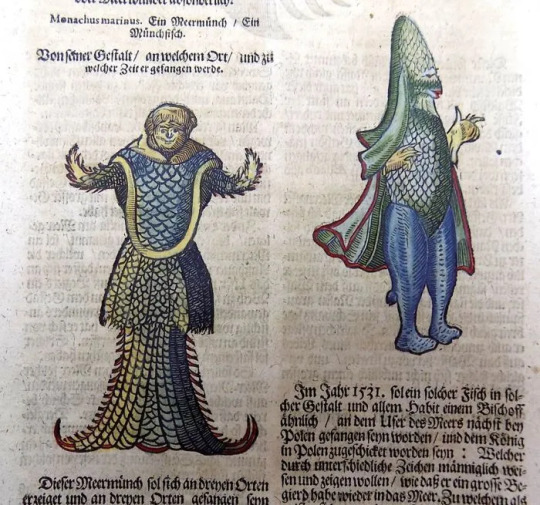
In reality, they were probably partially decomposed giant squid -- a creature I wrote all about here:
525 notes
·
View notes
Text
I also believe that in a "tech level" approach, though of course I dislike that term, trying to get blood out of the stone of pseudo-medieval settings just constrains you. There are plenty of very, very well researched guides to medieval life and technology, mostly about Europe but you will find them about the Islamic world, Eastern Asia, and so on...
but the thing is, even with well researched settings, even with very welcome switches to other historical inspirations, it's just done and tired. We are talking about fantasy, a genre that can encompass the entirety of human imagination, and people always go back to the same time period of 476-1453 like stuck in a time loop, it's maddening.
There is a lot to talk about this but let's focus on tech for a little. Do you know how ingenious bronze age technology was? Did you read about pre-columbian cities and engineering? What about something beyond the Middle Ages, the inventions of the Renaissance or Early Modernity? I think there has been quite a lot on fantasy with industrial technology but it often feels (especially in things like popular RPGs) that it's a couple of steampunk things stacked upon a medieval-inspired world. How about a world that just skips the medieval aesthetics and goes to an industrial revolution?
And since this is fantasy, you can mix and match technology and inventions. What's more, you can explore art styles and philosophies, that's more complex to reflect but very well worth it. There is simply no need to return again and again to the tired aesthetics, true, but you can also learn how technology shaped history and do something more creative about it that researching just the same time period over and over and over.
I think we're just done with castles and plate armor.
#cosas mias#biotipo worldbuilds#worldbuilding#fantasy#it's like when in my infamous potato posts I talk about coffee and such commodities in science fiction#but all the replies are about potatoes in medieval fantasy#don't you want to imagine how coffee production and trade works? be warned: it implies things outside medieval europe! scary!!!!!
160 notes
·
View notes
Text

“Phantasies” 1620
#alchemy#symbolism#hermetic#old art#vintage#old book#engraving#etching#esoteric illustration#illustration#occult#artwork#esoteric#gothic#monotone#monochrome#moody#dark#dark aesthetic#goth art#alchemical#spiritual#old science#vintage books#vintage art#witchy things#spiritual art#black and white#medieval#gothcore
94 notes
·
View notes
Text
“If you deny any affinity with another person or kind of person, if you declare it to be wholly different from yourself—as men have done to women, and class has done to class, and nation has done to nation—you may hate it, or deify it, but in either case you have denied its spiritual equality, and its human reality. You have made it into a thing, to which the only possible relationship is a power relationship. And thus you have fatally impoverished your own reality.” Ursula K. Le Guin "American SF and The Other" in Science-Fiction Studies 7, 1975.
#quotes#quote#quotes on tumblr#ursula k. le guin#le guin#ursula le guin#ursula k le guin#writing#writer#fantasy writer#fantasy novel#fantasy worldbuilding#urban fantasy#fantasy#medieval fantasy#fantasy world#monsters#monster theory#creative writing#queer writers#writers on tumblr#writers and poets#story writing#worldbuilding#scifi#sci fi and fantasy#sci fi#science fiction#sci fi books#social justice
98 notes
·
View notes
Text
did not have "actual fucking alchemy" on my 2025 bingo card
90 notes
·
View notes
Text

Jim Roslof's depiction of English knights going to war against the spacefaring Wersgorix, far from Earth of the 14th century, inspired by Poul Anderson's novel The High Crusade (Ares Magazine No. 16, featuring the board wargame The High Crusade by David Cook and the Poul Anderson short story "Quest," Winter 1983, by TSR/Dragon Publishing under the SPI name)
#The High Crusade#Jim Roslof#Ares magazine#wargame#science fantasy#sci fi#fantasy#Wersgorix#medieval#holy grail#TSR#SPI#1980s
96 notes
·
View notes